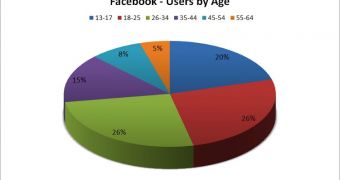University of Cincinnati investigators determined that the messages and images people post on online social networking sites could cost them their prospective jobs. Employers always look over job applicants' online accounts, and what they find there could be grounds for dismissal.
What is even more interesting is that even what one would catalog as normal or ordinary images and messages could cost applicants their prospective jobs. The new report draws attention to several widespread behaviors, both by people looking for work and companies looking for new employees.
One of the example the study lists is that of a person who applied for an educator position in an elementary school, but had the application dismissed because one of the images posted on Facebook contained the individual and a glass of wine.
The would-be educator was dismissed, raising some interesting concerns among school boards and other officials in a position to make decisions. Experts are already working online in order to prevent behaviors such as cyberbullying, but the question is, how far should they be allowed to go?
On one hand, we have the idea that teachers should be role models for the children they are taking care of. On the other, each individual has the right to privacy, as well as free speech. The two sides of this argument should never be set against each other head-on, commentators say.
University of Cincinnati assistant professor and study team member Janet Decker says in the study that numerous educators throughout the United States have been kicked out of their positions lately, on account of their online behaviors. The study appears in the January issue of Principal Navigator, PsychCentral reports.
“Despite the evolving issues, the courts have not provided extensive guidance for administrators. Part of the difficulty is that technology advances at a quicker pace than legal precedent, leaving school employees and administrators unsure of their legal responsibilities,” Decker writes in the journal.
Issues such as sexual harassment or abuse of students, freedom of speech for public employees and employee privacy are also discussed in the new research. “In general, it is important to understand that school employees are expected to be role models both inside and outside of school – even while on Facebook,” Decker concludes.

 14 DAY TRIAL //
14 DAY TRIAL //